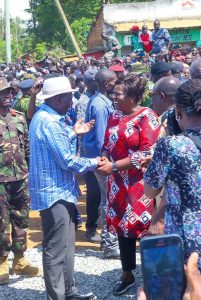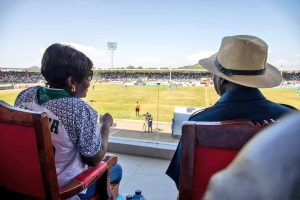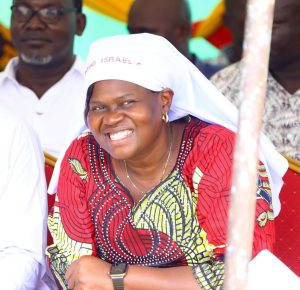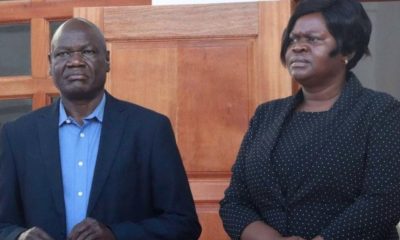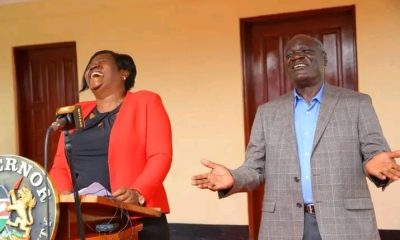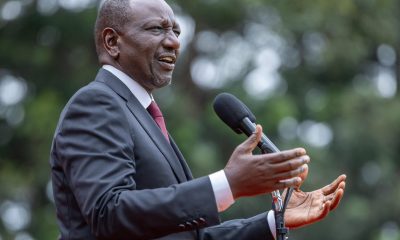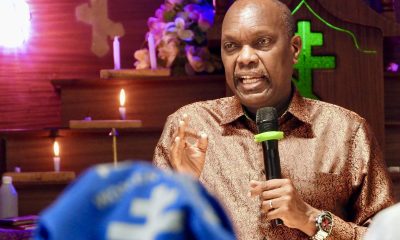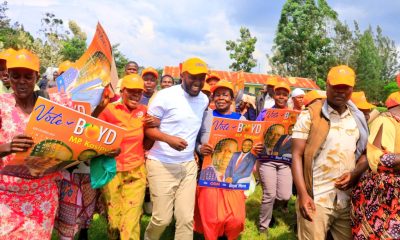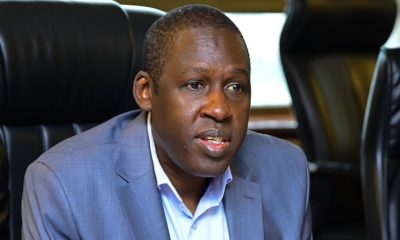Opinion
Is Gladys Wanga Being Groomed To Be Ruto’s Deputy in 2027?
Ruto himself has previously hinted at the possibility of selecting a female running mate, suggesting that the gender factor isn’t just wishful thinking, it’s a serious political consideration.
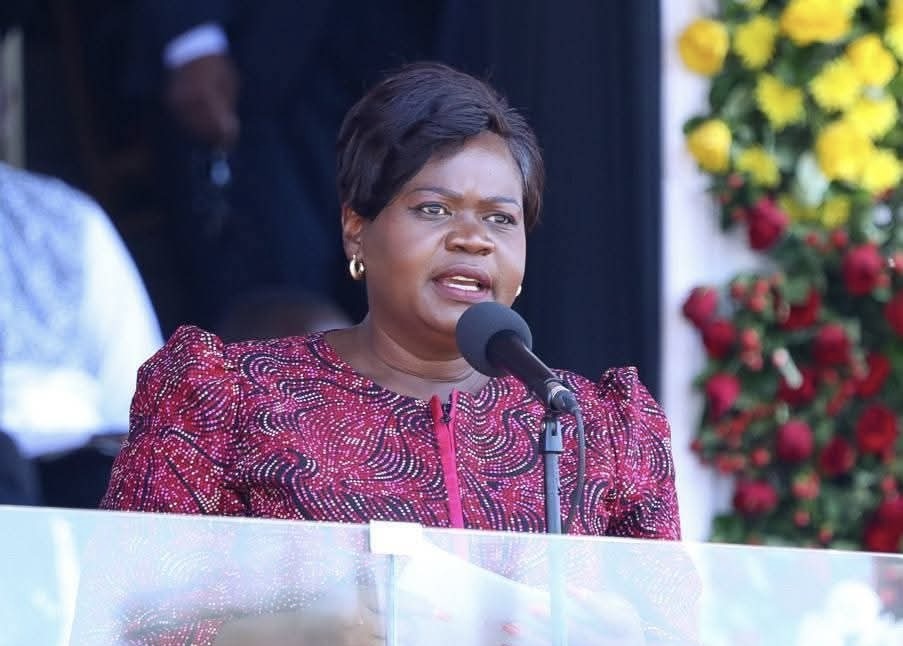
The Political Chess Game That Could Reshape Kenya’s Leadership
In the intricate web of Kenyan politics, few stories capture the imagination quite like the meteoric rise of Homa Bay Governor Gladys Wanga. As the political machinery for 2027 begins to churn, a compelling narrative is emerging: Could the ODM chairperson be positioning herself or being positioned as President William Ruto’s running mate for his re-election bid?
The question isn’t merely speculative gossip.
It represents a confluence of political pragmatism, gender dynamics, and strategic alliance-building that could fundamentally alter Kenya’s leadership landscape.
The Foundation: From Opposition Stalwart to Unlikely Ally
Wanga’s political journey reads like a masterclass in strategic positioning.
Having served as Homa Bay Woman Representative from 2013 to 2022 before ascending to the governor’s mansion, she has consistently demonstrated both grassroots appeal and administrative competence.
But it’s her recent elevation to ODM national chairperson that has set tongues wagging in political circles.
The timing is hardly coincidental.
Her appointment came as President Ruto was bringing key opposition figures into his broad-based government, a move that has fundamentally redrawn Kenya’s political map.
In a landscape where yesterday’s enemies become today’s allies, Wanga represents something potent: legitimacy within the opposition combined with pragmatic cooperation with the ruling administration.
Wanga has been unequivocal in her support for Ruto’s agenda, stating that ODM fully supports the President’s development initiatives.
This isn’t merely political theater—it’s a strategic recalibration that positions her as a bridge between two historically antagonistic political traditions.
The Broad-Based Government: More Than Political Window Dressing
The March 8 UDA-ODM deal that brought Orange Party figures into Cabinet positions wasn’t just about sharing power, it was about reshaping electoral mathematics for 2027.
For Ruto, the inclusion of ODM heavyweights serves multiple purposes: it neutralizes potential opposition, brings crucial regional representation, and provides options for his running mate selection.
Wanga’s role in this arrangement is particularly intriguing.
Unlike other ODM figures who joined government as Cabinet Secretaries, she has maintained her gubernatorial position while ascending within the party hierarchy.
This dual positioning as both a successful county executive and national party leader, creates a unique political profile that could prove invaluable in a national campaign.
The Gender Factor: Kenya’s Overdue Political Revolution
Perhaps the most compelling argument for Wanga’s deputy presidency candidacy lies in Kenya’s long-overdue reckoning with gender representation.
Despite comprising over 50% of the population, women remain dramatically underrepresented in Kenya’s highest offices.
The country has never had a female president or deputy president, a statistic that becomes more glaring with each electoral cycle.
The demand for female leadership isn’t just coming from women’s rights activists.
Women movements are making a strong case that Kenya is “ripe for a woman Deputy President”, and this sentiment is gaining traction across political divides.
Ruto himself has previously hinted at the possibility of selecting a female running mate, suggesting that the gender factor isn’t just wishful thinking, it’s a serious political consideration.
Caren Oloo of Maendeleo Ya Wanawake captured this sentiment perfectly: “Kenya is ripe to get a woman leader at the top. For too long, we have been underrepresented in positions of power.”
This isn’t just about representation, it’s about recognizing that excluding half the population from top leadership positions is both morally indefensible and politically shortsighted.
The Kindiki Conundrum: Why Change Might Be Inevitable
Current Deputy President Kithure Kindiki’s position, while seemingly secure, faces several structural challenges that could make a change inevitable.
Recent analysis suggests it may be impossible for Ruto to retain Kindiki as his running mate in 2027, though the deputy president has been actively campaigning for the ticket through nationwide tours.
The challenge for Kindiki isn’t personal competence—he’s widely regarded as capable and loyal.
Rather, it’s about electoral mathematics and political coalition-building.
As Ruto seeks to broaden his base beyond the Kenya Kwanza coalition, the running mate slot becomes a crucial tool for cementing new alliances and appealing to previously hostile constituencies.
Regional Dynamics: The Luo Factor in National Politics
Wanga’s potential candidacy takes on added significance when viewed through the lens of regional politics.
Should Raila Odinga indeed exit active politics as many expect, the Luo community—Kenya’s third-largest ethnic group—would need new national leadership.
Wanga, with her proven track record and national profile, could emerge as the natural successor to Odinga’s political legacy.
This transition wouldn’t just be symbolic.
The Luo community has historically played a pivotal role in Kenyan politics, and their support could prove decisive in 2027.
By selecting Wanga as his running mate, Ruto would effectively secure not just individual loyalty but potentially an entire regional bloc that has traditionally been in opposition.
The Competition: Waiguru and the UDA Dilemma
Wanga isn’t the only female politician being mentioned for the deputy presidency.
Kirinyaga Governor Anne Waiguru, a UDA stalwart serving her second and final term, remains a strong contender.
The choice between Wanga and Waiguru represents more than just individual preferences, it’s about the kind of coalition Ruto wants to build for 2027.
Waiguru offers continuity and loyalty from within the current ruling coalition.
She’s proven her ability to work within the UDA structure and has maintained strong ties with Central Kenya politics.
However, her selection would represent an inward-looking choice—rewarding existing allies rather than expanding the coalition.
Wanga, conversely, represents bold expansion. Her selection would signal Ruto’s commitment to transcending traditional political boundaries and building a truly national coalition.
It would also fulfill his implicit promise to elevate women to the highest levels of government.
The Raila Factor: Blessing or Burden?
One of the most intriguing aspects of Wanga’s potential candidacy is her relationship with Raila Odinga.
While his backing has been crucial to her rise within ODM, it could also become a liability if perceived as excessive male influence on her candidacy.
As Caren Oloo warned: “Right now, we know Raila is behind Wanga. Should he walk away from the Broad-Based Government, her dreams could be shattered.”
This observation highlights a crucial tension, while Odinga’s support is valuable, Wanga must establish herself as an independent political force to be truly viable as a national leader.
The key for Wanga will be demonstrating that her political strength derives from her own achievements and appeal, rather than merely from being Odinga’s preferred successor.
Her track record as governor and her grassroots mobilization skills suggest she has the foundation to make this transition successfully.
Electoral Mathematics: Building the Winning Coalition
Politics, ultimately, is about numbers, and the 2027 electoral mathematics are complex.
Ruto’s victory in 2022 was built on a carefully constructed coalition that combined his Rift Valley base with crucial support from Central Kenya and other regions.
For 2027, he needs to maintain this coalition while potentially expanding it to ensure decisive victory.
A Wanga candidacy would bring several electoral advantages.
First, it would likely secure significant support from Nyanza, traditionally an opposition stronghold.
Second, it would appeal to women voters across ethnic lines, a demographic that constitutes over 50% of the electorate. Third, it would position Ruto as a progressive leader willing to break traditional barriers.
However, this strategy isn’t without risks.
Some traditional Ruto supporters might view the selection of an ODM figure as betrayal, potentially depressing turnout in his core constituencies. The challenge will be managing this transition without alienating existing supporters while attracting new ones.
The Opposition Factor: Neutralizing Future Threats
From a strategic perspective, bringing Wanga onto the ticket would serve another crucial purpose: neutralizing potential opposition coalitions.
If she becomes Ruto’s running mate, it would be significantly more difficult for any opposition alliance to present a credible challenge from Nyanza or to build a broad-based anti-Ruto coalition.
This isn’t just about 2027—it’s about fundamentally altering Kenya’s political landscape for years to come.
By absorbing key opposition figures into his coalition, Ruto could create a dominant political formation that mirrors the kind of hegemonic arrangements that characterized earlier periods of Kenyan politics.
Kenya’s Global Image
Kenya’s international partners have increasingly emphasized the importance of gender equality and women’s empowerment.
A female deputy president would send a powerful signal about Kenya’s commitment to these values, potentially enhancing the country’s standing in international forums and with development partners.
This consideration shouldn’t be underestimated in an era where Kenya seeks to position itself as a regional leader and global partner.
Having a woman in the second-highest office would represent significant progress and could yield tangible benefits in terms of international relationships and development cooperation.
Challenges and Obstacles
Despite the compelling case for Wanga’s candidacy, several obstacles remain.
First, there’s the question of whether ODM will demand formal pre-election agreements that could complicate the arrangement.
Political marriages of convenience are notoriously fragile, and the terms of any such alliance would need careful negotiation.
Second, there’s the challenge of managing internal UDA dynamics.
Long-time Ruto allies might resist what they perceive as excessive accommodation of former opponents.
The art of political leadership often lies in managing these internal tensions while pursuing broader strategic objectives.
Third, there’s the question of Wanga’s own political calculations.
While the deputy presidency would represent a significant elevation, it would also mean subordinating herself to Ruto’s leadership and agenda.
For a politician who has built her career in opposition, this transition requires careful consideration of long-term implications.
The Verdict: Grooming or Genuine Partnership?
So, is Gladys Wanga being “groomed” to be Ruto’s deputy in 2027?
The evidence suggests something more complex than simple grooming—it appears to be a case of mutual political advantage creating conditions for potential partnership.
Wanga brings undeniable assets to any potential ticket: proven leadership ability, gender representation, regional appeal, and the capacity to bridge traditional political divides.
For Ruto, her selection would represent bold coalition-building that could secure his re-election while positioning his administration as progressive and inclusive.
The question isn’t whether she’s qualified—her track record speaks for itself.
Rather, it’s whether the political stars will align to make this partnership beneficial for all parties involved.
In a political environment where today’s allies can become tomorrow’s opponents, such calculations are never simple.
The Making of History
Whether or not Gladys Wanga becomes William Ruto’s running mate in 2027, her emergence as a serious candidate represents something significant in Kenyan politics.
It signals the maturation of women’s political leadership and the gradual breakdown of traditional barriers that have long excluded half the population from the highest offices.
For Kenya, the prospect of its first female deputy president—regardless of who ultimately gets the nod—represents long-overdue progress.
For Wanga personally, it represents the culmination of a political journey that began in the opposition trenches and could end in the corridors of State House.
The 2027 election remains more than two years away, and much can change in that time. Political alliances will shift, new crises will emerge, and electoral dynamics will evolve.
But one thing seems certain: Gladys Wanga has positioned herself as a serious player in Kenya’s political future, and her influence on the country’s trajectory is only beginning to be felt.
As Kenya stands at this political crossroads, the question isn’t just about individual ambitions or party calculations—it’s about the kind of leadership the country needs for its next chapter.
In Gladys Wanga, voters may well see not just a potential deputy president, but a symbol of the change they’ve long been promised but rarely delivered.
The game is afoot, the players are positioning themselves, and history waits to be written.
Kenya Insights allows guest blogging, if you want to be published on Kenya’s most authoritative and accurate blog, have an expose, news TIPS, story angles, human interest stories, drop us an email on [email protected] or via Telegram
-

 Business7 days ago
Business7 days agoEastleigh Businessman Accused of Sh296 Million Theft, Money Laundering Scandal
-

 Investigations5 days ago
Investigations5 days agoInside Nairobi Firm Used To Launder Millions From Minnesota Sh39 Billion Fraud
-

 Business6 days ago
Business6 days agoMost Safaricom Customers Feel They’re Being Conned By Their Billing System
-

 Business7 days ago
Business7 days agoEXPLOSIVE: BBS Mall Owner Wants Gachagua Reprimanded After Linking Him To Money Laundering, Minnesota Fraud
-
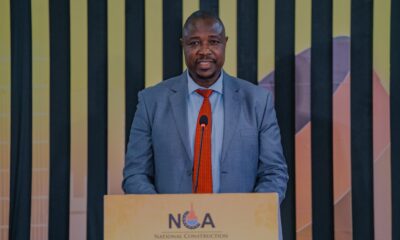
 News5 days ago
News5 days agoUnfit for Office: The Damning Case Against NCA Boss Maurice Akech as Bodies Pile Up
-
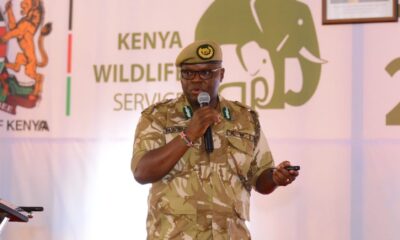
 News6 days ago
News6 days agoTax Payers Could Lose Millions in KWS Sh710 Insurance Tender Scam As Rot in The Agency Gets Exposed Further
-

 Sports7 days ago
Sports7 days agoFury as Bettors Demand Probe Into Betika Over Alleged Unpaid Winnings
-
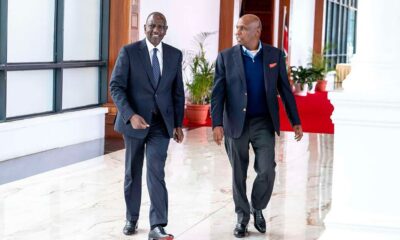
 Politics1 week ago
Politics1 week agoHow Ruto-Moi Deal Died After Temporary State House Ceasefire

